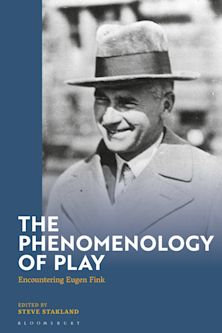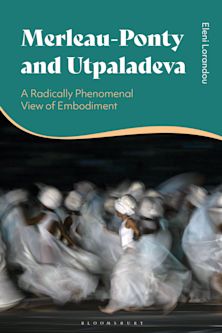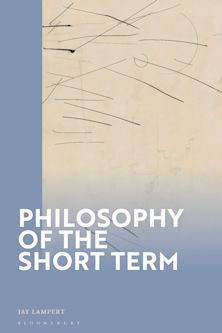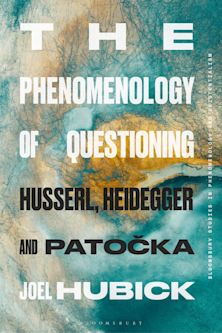- Home
- ACADEMIC
- Philosophy
- Phenomenology
- Kyoto School Philosophy in Comparative Perspective
Kyoto School Philosophy in Comparative Perspective
Ideology, Ontology, Modernity
Kyoto School Philosophy in Comparative Perspective
Ideology, Ontology, Modernity
You must sign in to add this item to your wishlist. Please sign in or create an account
Description
Kyoto School Philosophy in Comparative Perspective: Ideology, Ontology, Modernity presents the thought of the Kyoto School, the most famous Japanese philosophical movement of the twentieth century, by comparing the philosophy of its most representative members—Nishida and Nishitani—with some better known thinkers in the West: Husserl, Heidegger, Merleau-Ponty, Paul Ricœur, and Michel Henry. Bernard Stevens highlights the proximity of this movement of thought to the European phenomenological current that influenced it. However, the book also addresses an eminently problematic reality: the affiliation of some of its members with the militarism of the 1930s and 1940s. The political philosophers Arendt and Maruyama provide useful guidance here, in clarifying one of the central issues of this episode: the ideology of "overcoming modernity", supported by some of the younger disciples of Nishida. This book proposes intellectual conditions for both critical and appreciative receptions of one of the most fascinating philosophical adventures of the twentieth century.
Table of Contents
Chapter 1: A Few Observations on Maruyama Masao
Chapter 2: Arendt and Maruyama: Two Complementary Approaches to Totalitarianism
Chapter 3: Modernity and Its Overcoming
Chapter 4: Political Engagement and Political Judgment in the Thought of Nishitani Keiji
Chapter 5: The Dimensions of Time Reflected in the Thought of Nishitani Keiji
Chapter 6: Reflections on the Notion of Reality in the Thought of Nishida and Nishitani
Chapter 7: Nishida Kitaro and Michel Henry: Philosophers of Life
Chapter 8: Self in Space: Nishida, Merleau-Ponty and Michel Henry
Chapter 9: The Intercultural and Daseinsanalytical Psychiatry of Kimura Bin
Conclusion: The Pine Tree
Product details
| Published | Jan 24 2023 |
|---|---|
| Format | Ebook (PDF) |
| Edition | 1st |
| Extent | 1 |
| ISBN | 9781978779945 |
| Imprint | Lexington Books |
| Publisher | Bloomsbury Publishing |
About the contributors
Reviews
-
Students and scholars of modern Japanese philosophy will enthusiastically welcome – and greatly benefit from reading – this collection of comparative essays on the Kyoto School philosophers Nishida Kitaro and Nishitani Keiji, the political theorist Maruyama Masao, and the psychiatrist Kimura Bin. By bringing the ideas of these leading twentieth-century Japanese thinkers into critical dialogue with those of their contemporary European philosophers such as Hannah Arendt, Marice Merleau-Ponty, and Michel Henry, Bernard Stevens manages to shed new light on key issues in metaphysics and existential phenomenology as well as in political philosophy.
Bret W. Davis, author of Zen Pathways: An Introduction to the Philosophy and Practice of Zen Buddhism
-
Masterfully written by a renowned philosopher trained in the European phenomenological-hermeneutic tradition and a pioneer in the intercultural practice of philosophy, this book perfectly fulfills its two main aims: to clarify the ideological controversy surrounding the Kyoto School and to interpret the contributions to philosophy of its main figures alongside others more familiar to Western readers, such as those of Husserl, Heidegger, Arendt, Merleau-Ponty, Ricoeur and Michel Henry. Beyond the interest that Japanese intellectual history may arouse in the reader, this work will captivate anyone who raises philosophical questions, since such long-standing discussions on modernity or totalitarianism and topics as life, time, the body, space, or reality acquire a new light in the fascinating dialogue that Stevens engages in, moving with ease between Asian and Western thought. This volume will undoubtedly be a reference work not only for the understanding of the philosophy of Nishida, Nishitani, Watsuji, or Kimura Bin, but also to generate new studies by the new lines of research it opens.
Raquel Bouso, Pompeu Fabra University

ONLINE RESOURCES
Bloomsbury Collections
This book is available on Bloomsbury Collections where your library has access.



































